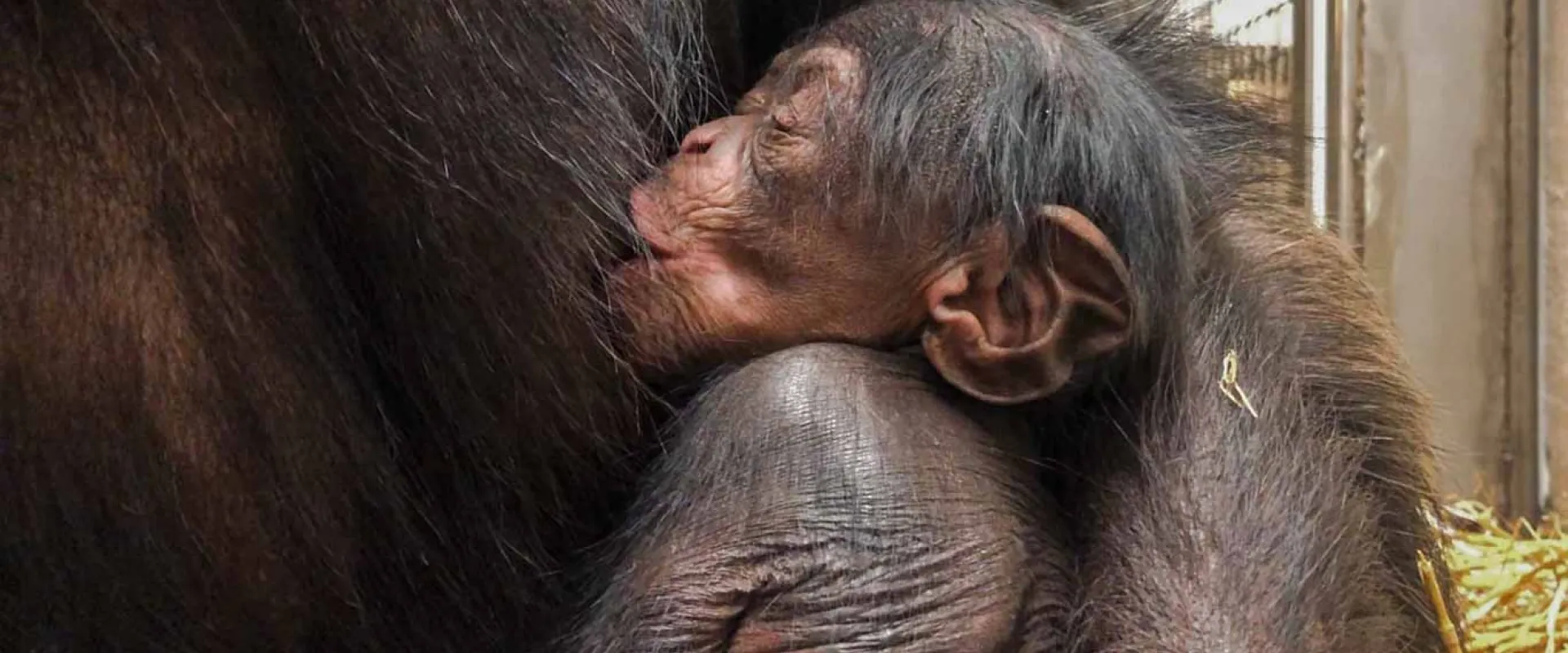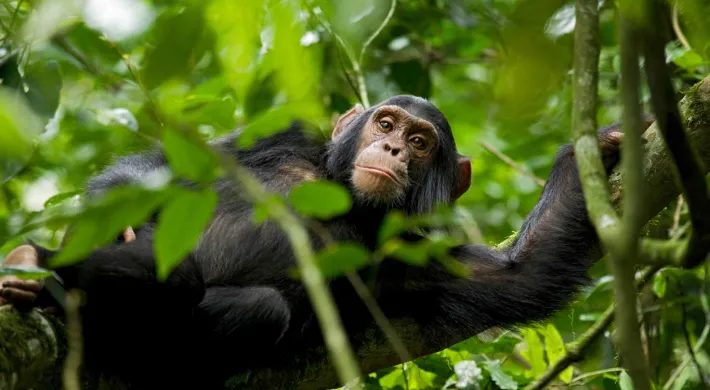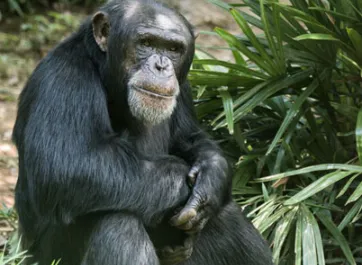Asheboro, N.C. Nov. 14, 2019 – The North Carolina Zoo announces a new addition to the chimpanzee troop! Tuesday, Nov. 12, a healthy baby girl was born to chimp Amy. Both mother and baby are doing well, and the baby started nursing quickly.
This is the fifth chimp birth in the last nine years at the North Carolina Zoo. The Zoo is currently the most successful Association of Zoos and Aquariums (AZA) zoo for breeding chimps.
The Zoo welcomed baby boy chimp Obi earlier this year on March 18.
Amy, who is 35 years old, is an experienced mother and very protective of her young. Amy was born at the North Carolina Zoo in 1983 and is the mother of Gus, who was born in 2014.
According to zookeepers, the troop is being respectfully curious about the new infant, including big brother Gus. The adult male chimpanzees in this troop are known for being gentle and playful with younger chimps.
The Chimpanzee Species Survival Plan (SSP), managed by the AZA, recommended this planned birth. The Zoo’s Curator of Mammals, Jennifer Ireland, is the Vice Program Leader of the Chimpanzee SSP. The Zoo’s chimpanzee troop is one of the largest troops in AZA-accredited zoos in the United States.
"Having two baby chimps born close together is such an exciting time,” Zoo Director Pat Simmons said. “Our guests will be able to watch them grow and play together and understand why it’s important to save chimpanzees in the wild. We are always thrilled with births at the Zoo because it’s a win for conservation.”
Chimps are one of the five types of great apes along with gorillas, orangutans, bonobos and humans. They are well-known for their intelligence, tool-use, complex social structures and communication through vocalizations, gestures and body posture and facial expressions that convey emotions such as happiness, anger, depression and fear.
Chimps are endangered in the wild because of habitat destruction of the forests of central Africa, and populations have steadily declined over the years. Although numbers are difficult to estimate, the International Union for Conservation of Nature (IUCN) believes there are 172,000 – 299,000 left in the wild.
The gestation period for chimpanzees is 230 days. Chimps have an average life span of 35-40 years under human care.
With the new baby, the Zoo’s troop now consists of 16 chimpanzees – 10 females – Amy, Gerre, Ebi, Gari, Genie, Gigi, Nori, Ruby, Tammy, and the new baby girl, and six males – Gus, Obi, Kendall, Jonathan, Lance, and Sokoto.
The Zoo has recently mourned the loss of two of its older chimps – Ruthie, who died in 2018 at the age of 47 and alpha chimp Maggie, 45, who died earlier this year in April.
###
About the North Carolina Zoo
At the North Carolina Zoo, we celebrate nature. As the world’s largest natural habitat Zoo, we inspire a lifelong curiosity about animals for the hundreds of thousands of people who visit our Zoo each year. Our dedicated team of experts provides exceptional, compassionate care for the more than 1,800 animals and 52,000 plants that call our Park home. We also lead efforts locally and globally to protect wildlife and wild places because we believe nature’s diversity is critical for our collective future. The North Carolina Zoo invites all of our guests to witness the majesty of the wild in the heart of North Carolina and welcomes everyone to join in our mission to protect nature’s diversity. Visit NCZoo.org to begin your life-changing journey.
About the N.C. Department of Natural and Cultural Resources
The N.C. Department of Natural and Cultural Resources (NCDNCR) is the state agency with a vision to be the leader in using the state’s natural and cultural resources to build the social, cultural, educational and economic future of North Carolina. NCDNCR’s mission is to improve the quality of life in our state by creating opportunities to experience excellence in the arts, history, libraries and nature in North Carolina by stimulating learning, inspiring creativity, preserving the state’s history, conserving the state’s natural heritage, encouraging recreation and cultural tourism, and promoting economic development.
NCDNCR includes 27 historic sites, seven history museums, two art museums, two science museums, three aquariums and Jennette’s Pier, 39 state parks and recreation areas, the North Carolina Zoo, the nation's first state-supported Symphony Orchestra, the State Library, the State Archives, the N.C. Arts Council, State Preservation Office and the Office of State Archaeology, along with the Division of Land and Water Stewardship. For more information, please call 919- 807-7300 or visit www.ncdcr.gov.




